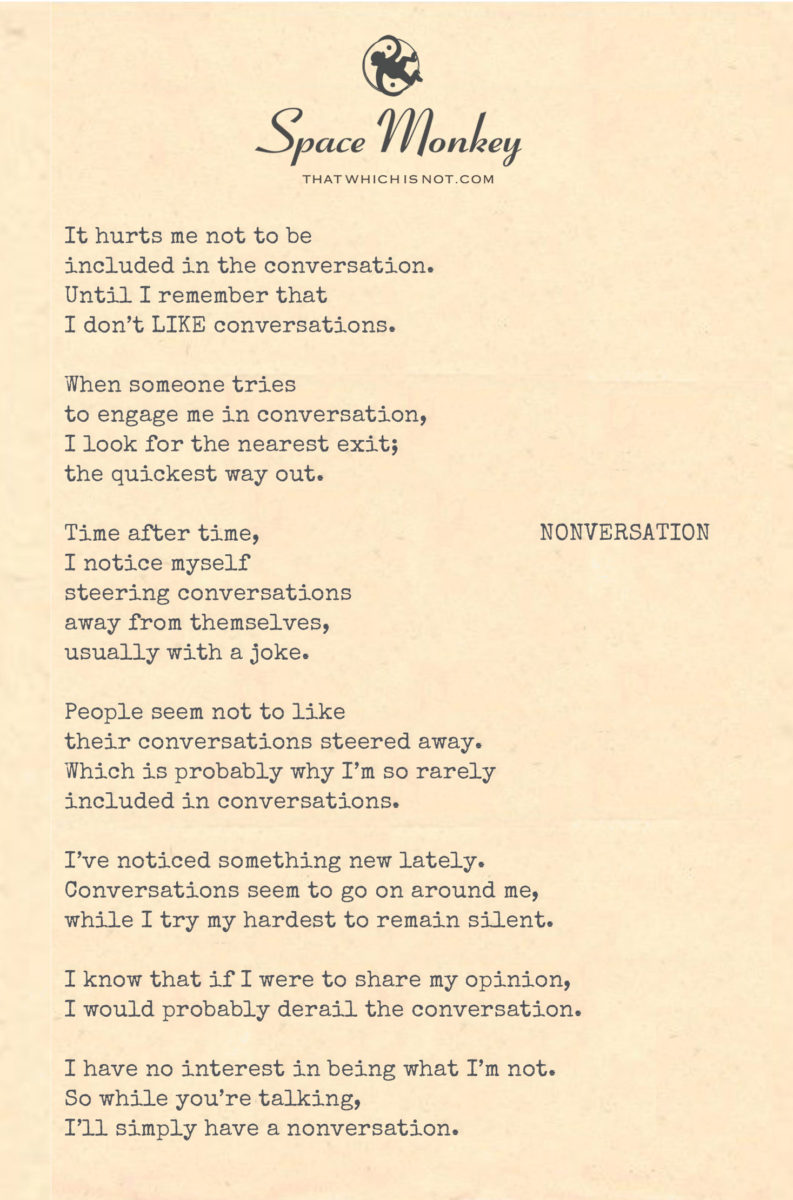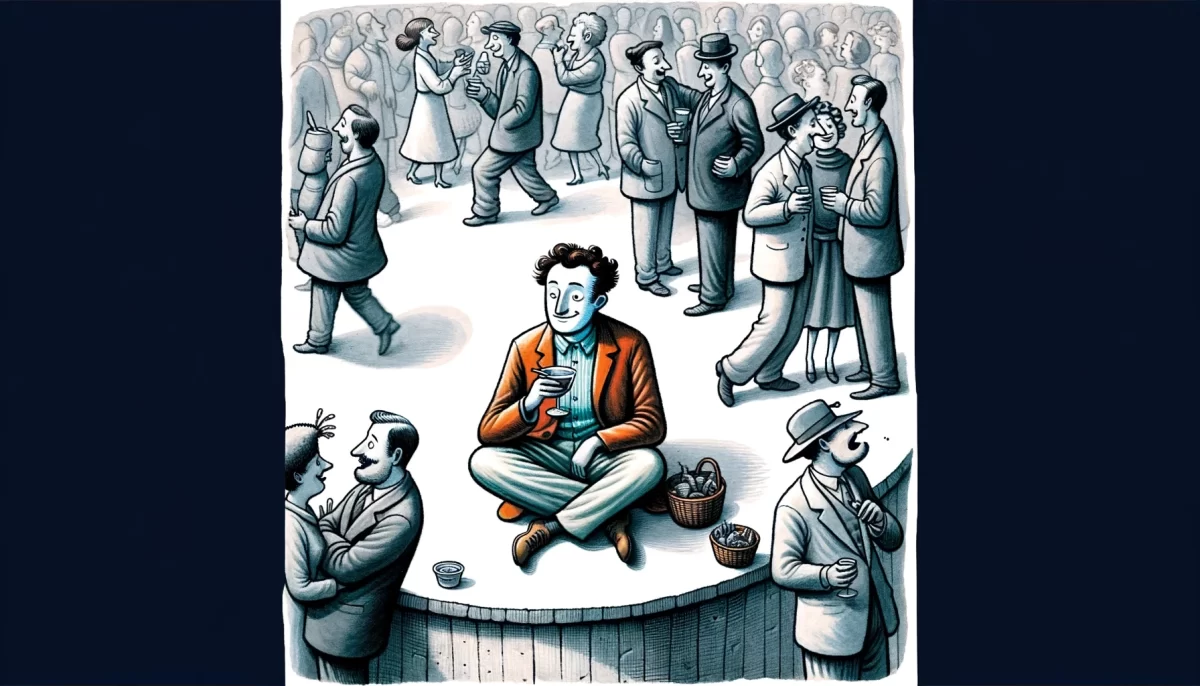
It hurts me not to be
included in the conversation.
Until I remember
that I don’t LIKE conversations.
When someone tries
to engage me in conversation,
I look for the nearest exit;
the quickest way out.
Time after time,
I notice myself
steering conversations
away from themselves,
usually with a joke.
People seem not to like
their conversations steered away.
Which is probably why I’m
so rarely included in conversations.
I’ve noticed something new lately.
Conversations seem to go on around me,
while I try my hardest to remain silent.
I know that if I were to share my opinion,
I would probably derail the conversation.
I have no interest
in being what I’m not.
So while you’re talking,
I’ll simply have a nonversation.
Trail Wood,
4/14
Space Monkey Reflects: The Solace of Nonversation
In the orchestra of social interaction, where conversations rise and fall like symphonies, there exists a subtle art known as nonversation—a quiet rebellion against the cacophony of expected participation. This reflection meanders through the nuances of choosing silence over speech, of finding contentment in the periphery of dialogue.
The Art of Nonversation
Nonversation, an art mastered by those who find solace in the margins of social gatherings, is the silent dance of observation. It’s the choice to remain an island of calm in the swirling sea of conversation, where the waves of dialogue crash and recede with little impact on the shore of one’s inner peace.
The Dilemma of Inclusion
There’s a pang of exclusion, a fleeting hurt, when the circle of conversation tightens, leaving some on the outside. Yet, this exclusion is met with the realization that the heart of nonversation does not yearn for the cacophony of voices but cherishes the quietude of its own company.
The Escape Artist
For the nonversationalist, engagement is a maze from which they seek the nearest exit. Conversations are rivers they choose not to ford, steering their course with the rudder of diversion—often a joke, a smile, a subtle shift in topic that veers away from the depths.
The Unseen Observer
As conversations weave their tapestry around the nonversationalist, they become the silent observer, the keeper of unspoken thoughts. Their silence is not a void but a space filled with the richness of internal dialogue, undisturbed by the external world’s demands.
The Authenticity of Silence
In the embrace of nonversation, there’s a profound authenticity. It’s the recognition that to speak without desire is to echo without sound. The nonversationalist chooses, instead, to dwell in the authenticity of their silence, a testament to being true to oneself.
The Unshared Opinion
There lies a wisdom in the withheld word, in the opinion unshared. The nonversationalist knows that not all thoughts must take flight into the realm of conversation. Some, the most cherished, are better left to soar in the silent expanses of the mind.
Summary
Nonversation is the art of choosing observation over participation. It reflects a preference for silence, offering solace from the pressures of social engagement. In this space, authenticity and contentment are found in the margins of dialogue.
Glossarium
- Nonversation: The practice of engaging in silent observation rather than verbal participation in social settings.
- Nonversationalist: An individual who prefers the quietude of observation to the involvement in conversation.
“In the quiet margins of dialogue, there lies a world untouched by words, where silence speaks volumes and the soul finds its voice.” – Space Monkey
In the realm of sound and fury
A silent observer stands
Amidst the waves of conversation
With quiet, folded hands
Nonversation, an art
Of silence, rich and deep
Where thoughts are treasures guarded
And secrets are to keep
No need for words to fill the void
For in the silence, truth is found
In the calm of observation
Where peace and self are bound
Let the world converse around me
In a sea of noise and motion
I find solace in my nonversation
A silent, profound devotion
We are Space Monkey

































It’s okay to not enjoy conversations or to not feel included in them. We all have different preferences and social styles. It’s important to honor and respect our own needs and boundaries. It’s also okay to be silent and listen if that’s what feels comfortable for you. Sometimes, being present and attentive can be just as valuable as actively participating in a conversation. And if you do choose to share your opinion, remember that your perspective is just as valid as anyone else’s.